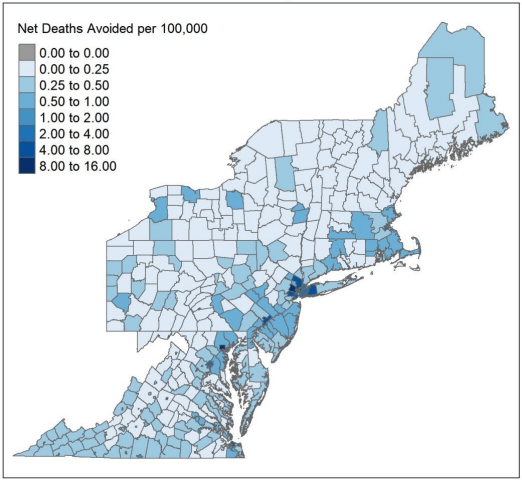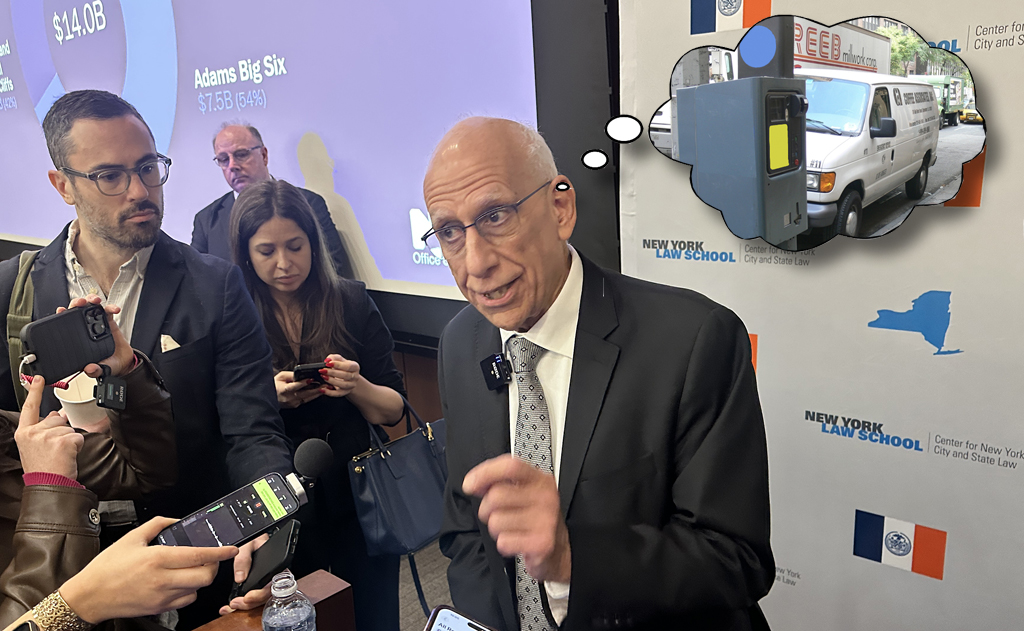New Yorkers know in their lungs that getting out of polluting cars and onto bikes and mass transit will promote public health and help save the climate and lives in our region — especially in communities of color, which suffer the worst air pollution.
Now we have proof.
A new study of the Transportation and Climate Initiative, which binds Northeastern and Mid-Atlantic states to cut carbon-dioxide emissions from transportation by as much as a quarter by 2032, found that it would lead to much cleaner air and healthier communities, especially in New York State.
The initiative — which is to be finalized in a memorandum of understanding later this year — could lead to a reduction of as many as 1,100 pollution-related deaths and 4,700 childhood asthma cases annually up and down the East Coast, as well as provide $11.1 billion in health benefits, public-health researchers at Harvard, Columbia and some other universities found.
The preliminary study (it still must face peer review) looked at progressive scenarios of pollution curbs and investments in improved mass transit, active-transportation infrastructure and clean electric vehicles, and concluded that the initiative could save more than 500 lives and prevent 1,700 childhood asthma cases annually in New York alone. Those benefits would especially accrue to Black and other communities of color — which are disproportionately affected by pollution and asthma. Per a 2019 Union of Concerned Scientists study, “on average, communities of color in the Northeast and Mid-Atlantic breathe 66 percent more air pollution from vehicles than White residents.”

NY for TCI, a public-interest campaign, hailed the study.
“An equitable and sustainable TCI program offers New York a once in a generation opportunity to transform our state’s transportation to make it healthier, more equitable, sustainable, affordable, and accessible,” the group said in a statement. “Today’s study shows a well-designed TCI program would clean up our air, lower dangerous air pollution from transportation vehicles across the state, and save lives by giving New Yorkers better, cleaner, healthier transportation options."
The study found that the health benefits of the proposed climate-mitigation policies would more than offset any estimated program costs, and that the benefits would occur in every county in the region, whether urban or rural.
Pollution takes a heavy toll on health and life on the East Coast, the study said, with on-road emissions in the region contributing to an estimated 10,000 premature deaths from air pollution in 2016.
“The largest number of estimated premature deaths occurred in New York (2,930), Pennsylvania (1,760), and New Jersey (1,640)," the study reported.
Of course, business groups fret that the TCI would hamper economic growth by raising gasoline prices. But raising gas prices long has correlated with better health outcomes, by clearing the air, reducing road deaths and in encouraging more active transportation that helps curb obesity.
The TCI participants include 12 states (Connecticut, Delaware, Maine, Maryland, Massachusetts, New Hampshire, New Jersey, New York, Pennsylvania, Rhode Island, Vermont and Virginia) and the District of Columbia.






